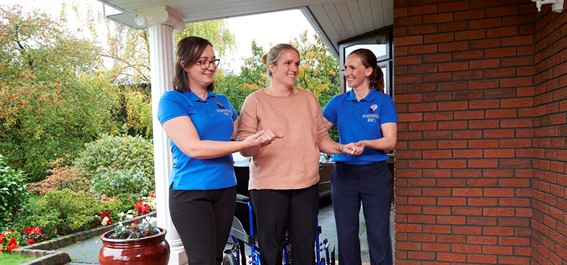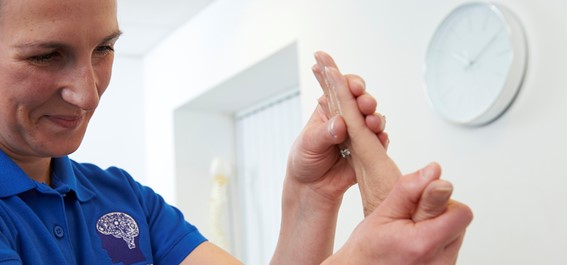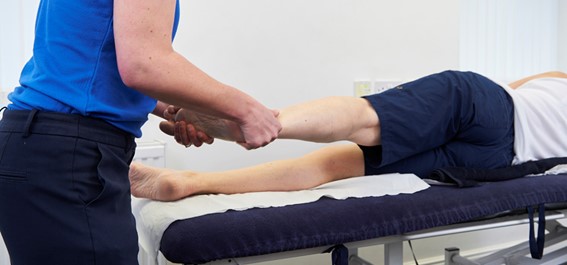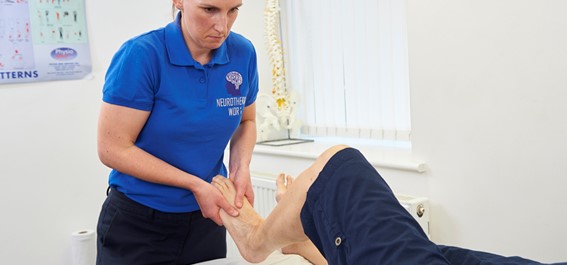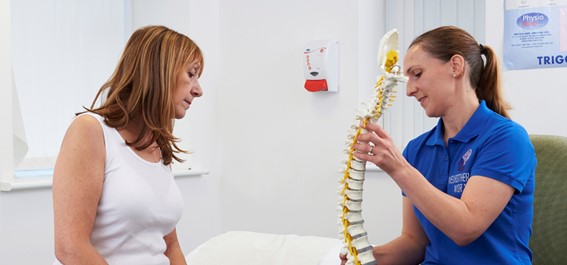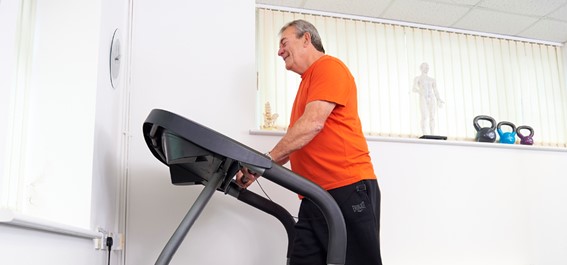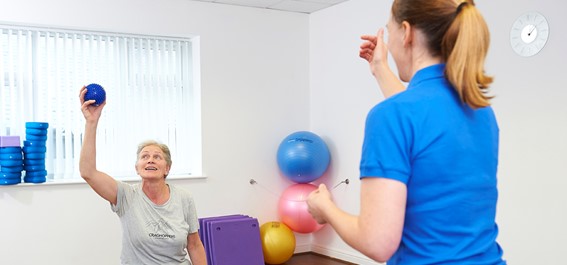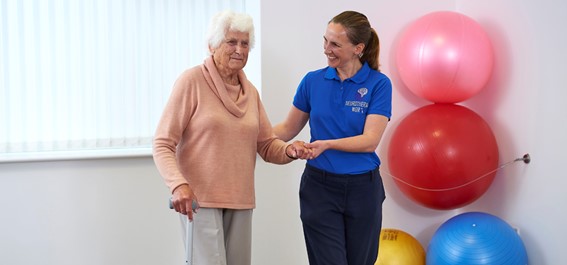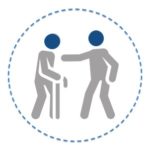

Parkinson’s disease
What is Parkinson’s disease?
Parkinson’s disease is a condition in which parts of the brain become progressively damaged over years. Parkinson’s disease results in a reduction in the production of a neurotransmitter called dopamine. Dopamine is responsible for relaying messages that plan and control body movement. As the cells that produce dopamine die, movement and coordination is affected.
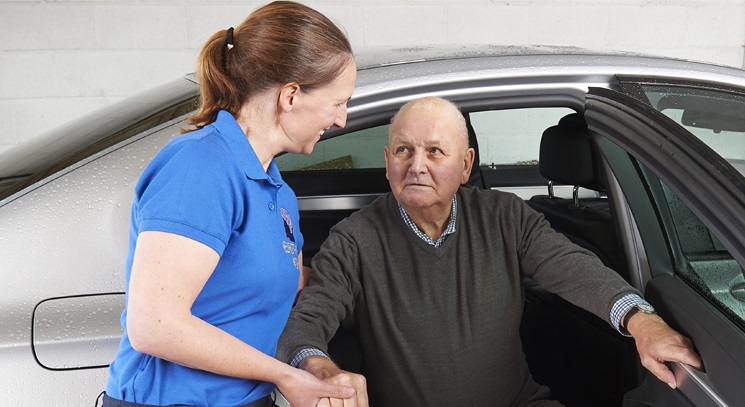

Symptoms of Parkinson’s disease
The following symptoms of Parkinson’s disease can vary and be different for each individual:
- Tremor
- Muscle stiffness (rigidity)
- Slowness of movement (bradykinesia)
- Reduced ability to initiate movement (freezing)
- Balance problems
- Pain
- Dizziness, blurred vision or fainting when moving from lying or sitting to stand due to low blood pressure
- Swallowing/speech problems (reduced volume of speech)
- Excessive drooling
- Cognitive problems
- Depression/anxiety problems
- Dementia- more severe memory problems, personality changes and visual hallucinations
How our Physiotherapy can help with Parkinson’s disease
Whether you have been recently diagnosed with Parkinson’s disease or have had the condition for a number of years, we at Neurotherapy Worx can help in the following ways:
- Specific ‘hands on’ neurological physiotherapy to help improve range of movement at your muscles and joints in order to be able to access movement in a more efficient way
- Postural exercises/re-education
- Balance re-education
- Gait re-education
- Assessment and provision of walking aids to help with your mobility
- Functional electrical stimulation (FES)
- Strategies to help with ‘freezing’ and initiating movement
- Set up home exercise/ stretching programmes to help you manage your condition and help improve or maintain range of movement and strength
- Liaise with your consultant and/or Parkinson’s disease specialist nurse with regards to medication management
- Breathing exercises/facial exercises to help with speech
- Virtual reality based therapy which can be used for exercise, rehabilitation or relaxation
- Aquatic therapy (Hydrotherapy) to help reduce pain and improve freedom of movement and mobility
- Referral to other services such as an orthotist (splinting/supports), wheelchair services, sensory impairment team, driving assessment team (if required)

How Does Neurotherapy Treatment Work?

We hold a brief conversation with you about what problems you struggle with and how you need help
We capture your personal details, discuss the costs and timings and arrange an appointment
During your first appointment, you share your goals with us and we conduct a physical assessment
We work with you to build a personalised treatment plan, during a scheduled period of intervention
We may prescribe some exercises to help you to address weakness, move more efficiently and improve your quality of life
We regularly review your progress and adjust your goals as you make improvements
What’s a Treatment Plan?
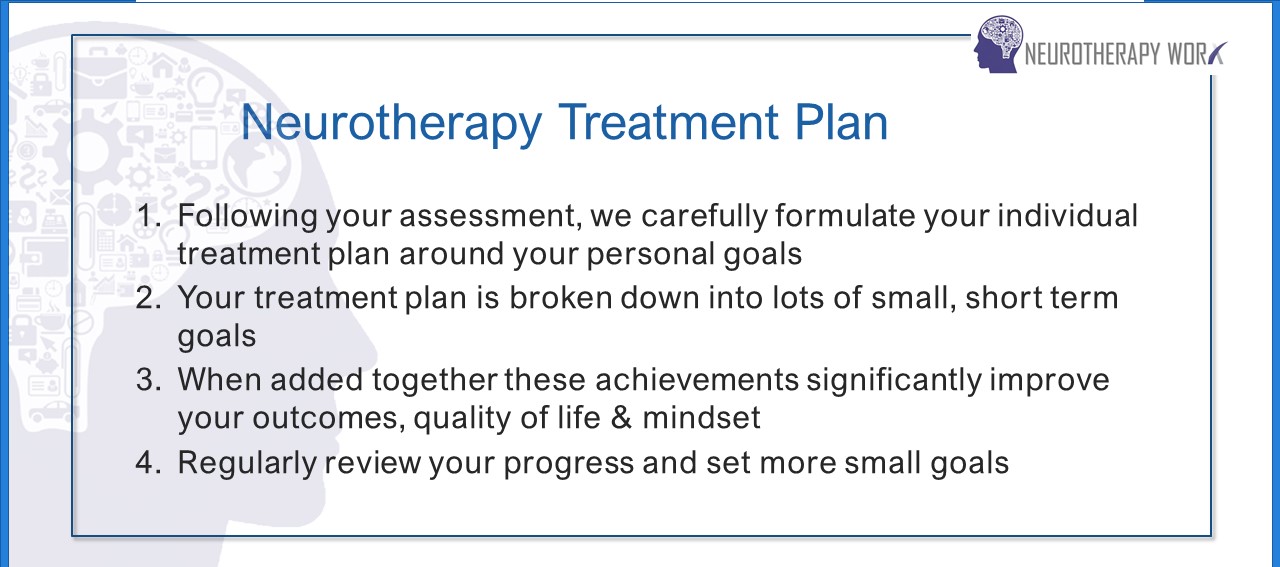
Why Work With Our Team?
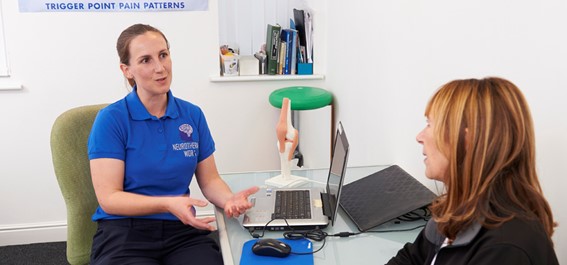
Patient Centric
Motivational, personalised and tailored care, based on your individual goals and fully adapted to your abilities
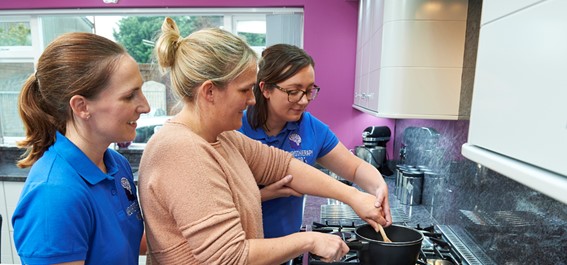
Multi Skilled Team
Our expert team work together when required, fully communicating to deliver the fastest and best outcomes

Fully Experienced
With extensive, hands on practical career experience of working in hospitals, clinics and the community
Why Trust Us for Your Treatment?

Qualified Specialists
Fully HCPC, CSP, Physio First, CPD, DBS accredited with proof of up date memberships upon request. We’re member of the aquatic therapy association of chartered physiotherapists (ATACP) and association of paediatric chartered physiotherapists (APCP) and association of chartered physiotherapists in neurology (ACPIN).

Innovative Therapies
By staying ahead of cutting edge industry treatments, we bring you new and unique support and options. We believe in staying ahead of technical advances within our industry to deliver the best levels of care. We research and use the latest medical devices to support our neurological therapies. See our therapies pages for more information.

Trust Us with your Data
We’ve invested in the latest, GDPR compliant IT systems for accurate patient record keeping. Our systems match the stringent data protection standards within the healthcare industry, enabling us to communicate fluidly with your other care providers and deliver collaborative care.
Home Visits
Our friendly team visit you in your home. Following our assessment, we support you with activities of daily living that you would like to carry out more easily. Our team are enhanced police checked.
Attend Our Clinic
Attend our fully equipped clinic for a full assessment & tailored treatment plan. Specialist equipment is available to support your activities & develop your skills, enabling you to achieve your personal goals
Neurological Problems We Help With
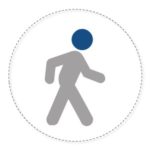
Walking Issues

Balance Problems

Coordination Problems

Visiospatial Disfunction

Sensory Loss
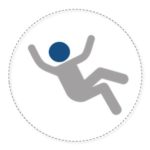
Falls

Fatigue

Pain

Spasticity
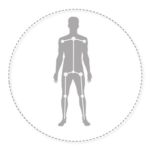
Body Alignment

Range of Movement

Reduced Muscle Tone
Neurological Conditions We Support
• Alzheimer’s Disease
• Balance Problems
• Brain Injury
• Brain Tumours
• Cerebral Palsy
• Dementia
• Functional Neurological Disorder
• Guillain-Barré Syndrome
• Hereditary Ataxias
• Motor Neurone Disease
• Multiple Sclerosis
• Muscular Dystrophy
• Parkinson’s Disease
• Peripheral Neuropathy
• Spinal Deformity and Injury
• Stroke





